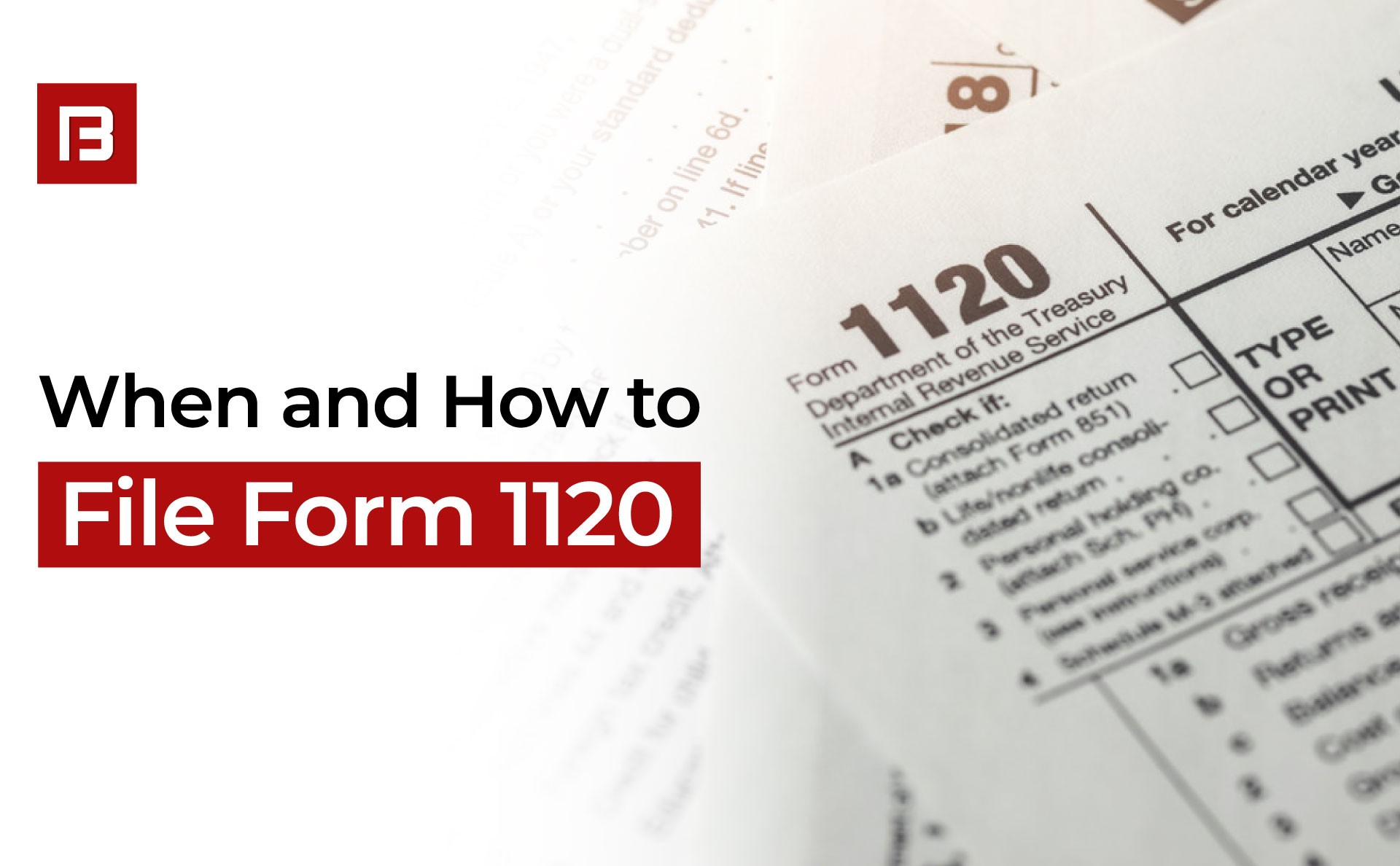When and How to File Form 1120

For every entity, tax season is an imperative part of the business journey, but it can also be irritating.
Being a corporation owner, during the tax returns filing process, you will encounter Form 1120.
This is one of the crucial components of a corporation’s tax return filing. Who needs to file it, how to file it, and when is this form due? In this blog post, we will break it down for you, making it a simple and straightforward process.
Worry not! Corporation owners, this guide will not only enhance your understanding of Form 1120 but also empower you to manage your taxes more effectively.
So stick your eyes on the screen; you are going to enjoy the process.
Let’s get started!
Who Submit Form 1120?
To make it clear-cut, the C Corporations, which are (for-profit companies) that were founded in accordance with state law and are separate legal entities from their owners, have to file Form 1120. It’s important to note that not all corporations are C Corporations. Understanding the difference can help you determine if you need to file Form 1120 or not.
How to Submit Form 1120:
Form 1120 can be electronically in two main ways:
IRS e-file:
IRS is the official electronic tax returns filing system governed by the central US government. The IRS website provides access to the system and instructions (https://www.irs.gov/filing/e-file-options).
Authorized e-file provider:
A lot of tax software providers and expert tax preparers provide approved electronic filing services.
When to submit Form 1120:
● The due date for submitting Form 1120 is usually the 15th day of the fourth month following the end of your corporation’s tax year.
● For the majority of firms, this implies an April 15th deadline.
● Nonetheless, if your company has a fiscal year ending on a date other than December 31st, then the deadline for submitting form 1120 will get changed.
● A company with a June 30th fiscal year-end, for example, would have a September 15th due date.
Wrapping it up.
Keep in mind that submitting Form 1120 accurately and timely is not just essential, it’s crucial. Failure to do so can result in significant IRS penalties, which can negatively impact your business. Understanding the importance of this task can motivate you to prioritize it and avoid any potential issues.
By being aware of the deadlines, filing procedures, and potential difficulties such as understanding complex tax laws or dealing with unexpected changes in tax regulations, you can ensure that your organization has an uninterrupted tax season. Being prepared for these challenges can help you navigate them more effectively and reduce stress during the tax filing process.
Remember, you’re not alone in this. Discussing with an experienced ‘taxation and advisory firm’ like Befiler is strongly advised. Their expert consultants can guarantee that you file correctly and benefit from all relevant tax perks, providing you with the support you need.

